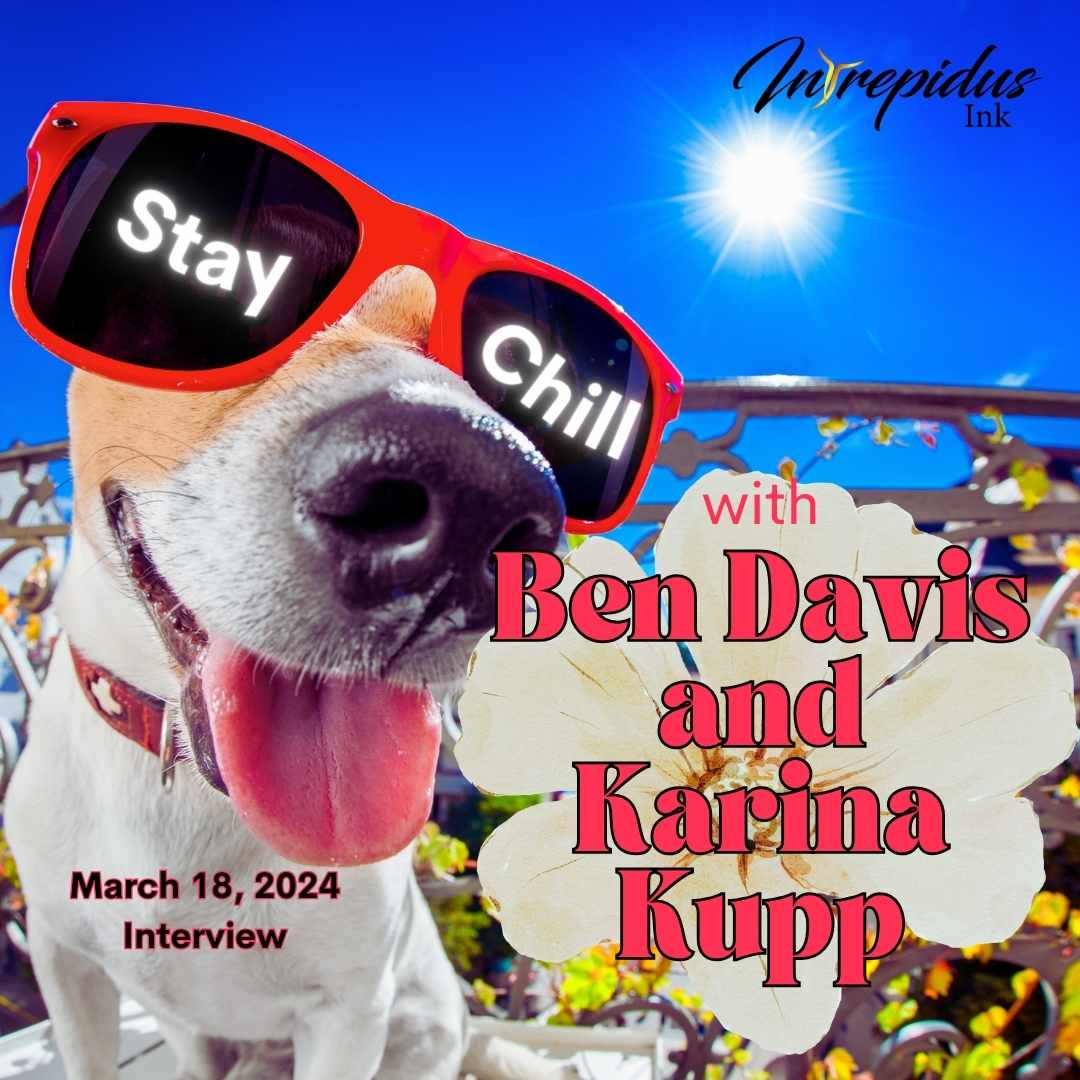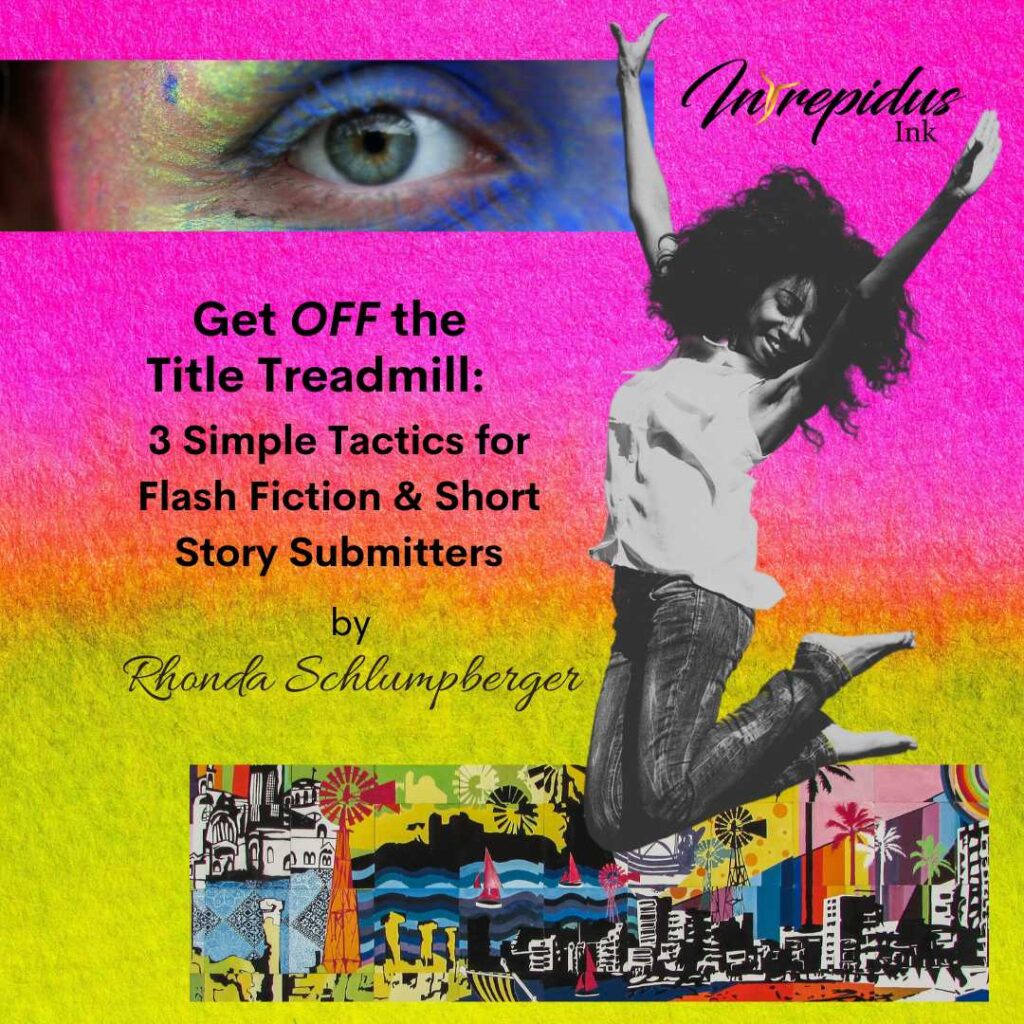
Get OFF the Title Treadmill: 3 Simple Tactics for Flash Fiction & Short Story Submitters
You’ve written your flash fiction or short story and are ready to hit submit—wait! You churn out title after title but cast each aside as worse than the last. That’s when you realize you’re stuck on the dreaded title treadmill. None of your selections fit your story. What do you do? Do you use a mediocre moniker and hope nobody notices? I don’t suggest that. Titles are essential to great literature but aren’t worth heart failure. I’ve learned good titles usually show up right on time when writers get ideas flowing. How? By changing processes. Try these three tactics for titling success: 1. Think of your title as a story preview. 2. Use word associations or other languages. 3. Mine your story for meaning.
THINK OF YOUR TITLE AS A STORY PREVIEW
We can glean lessons from other industries and apply them to our own. For instance, social media influencers use the preview technique to introduce a video before showing the entire length. Previews spur interest and hook viewers. Similarly, writers can preview their stories in the title. A great example of a preview title is “Popstar Mermaid in a Trash Storm Along the Mississippi” by Benjamin Davis. I love his choice. His preview promises celebrity conflict in a place we don’t expect to see it. HOOKED, right? Authors Le MacKenzie and MM Schreier also use great preview titles. Le’s “Goats in the Boiler Room” is simple and direct and previews a quirky situation. We’re instantly hooked. MM’s clever “when the ice moon rises, and the night is strangely bright” is a mysterious fragment; ice moon, oddly, promises danger. We must finish the sentence by reading on.
USE WORD ASSOCIATIONS OR OTHER LANGUAGES
Try listing the words (or word clouds, i.e., rhyming words) that represent your story. Then, like puzzle pieces, move the words around until they fit. For example, we chose fearless, bold, overcoming, brave, undaunted, and courageous as our magazine words. We realized this meant intrepid, but the English word seemed limited. When you hit a wall in English, try turning your search for the best title toward other languages. In our case, we chose the Latin word for intrepid: Intrepidus. A great example of titling using a Hungarian word and figure from folklore is “Táltos” by Zary Fekete. I adore its loaded elegance and exotic aesthetic. The title demands attention, and so does the story.
MINE YOUR STORY FOR MEANING
Ask yourself: “What does my story mean?” Dig for its singular essence and name it. Sometimes, however, what a story means—and its subsequent title—aren’t immediately related. An example is James S. A. Corey’s excellent book Leviathan Wakes. We think of Leviathan as a mythical sea creature of great power. Its title of a science fiction book set in outer space seems puzzling until readers understand Leviathan is a metaphor. MM Schreier mined the meaning of her recent (very inspiring) flash fiction and titled it “The Wise Internal Voice” without using those words in her story. Boom!
FINAL THOUGHTS
Now that you’re equipped with three simple tactics to step off the dreaded title treadmill, you never need to get back on! Be bold: experiment with preview titles. Puzzle out words until they fit or use words in other languages. Don’t forget to ask yourself, “What do my words mean?”
Want more tips, interviews, and great stories? Head on over to intrepidusink.com. As always, if you’ve got a story, click submit!
Thanks for reading, and don’t forget to give us a shout-out to let us know how these tactics worked for you!
Bio

Rhonda Schlumpberger is the founder and EIC of Intrepidus Ink, a magazine of intrepid culture: Alarmingly Individual, Gutsy Words. Her editing philosophy is to encourage, be truthful and gentle, and remember the author will always find the best solution. As a writer, her contemporary and speculative works often examine themes of rules, rebellion, and consequences. Her stories appear in Space and Time Magazine, New Flash Fiction Review, All Worlds Wayfarer IX & XV, Misery Tourism, other online magazines, and anthologies such as When the World Stopped and Like Sunshine After Rain, edited by Heidi Ruby Miller. She holds an MA in English and Creative Writing and an MFA in Writing Popular Fiction. Her best advice is to drink coffee hot-hot and doctor lavishly with hazelnut creamer. On X @intrepidusink & Instagram.

